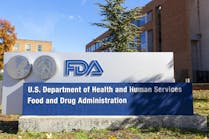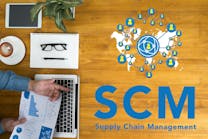Challenges with White House Supply Chain Task Force and Project Airbridge
A memo dated July 2, 2020, from the Congress of the United States, House of Representatives, provides a summary of voluntary discussions between staff members of the Committee on Oversight Reform and representatives of six large medical equipment distribution companies that are playing a role in the Trump Administration’s response to the coronavirus crisis: Cardinal Health, Concordance Healthcare Solutions, Henry Schein, McKesson, Medline and Owens & Minor. This memo also includes information provided by the Health Industry Distributors Association (HIDA), a trade group that has acted as a conduit between members of the healthcare distribution industry and the Trump Administration.
These private sector officials agreed to talk with Committee staff about challenges they faced over the past six months in providing personal protective equipment (PPE) and other critical medical supplies to communities across the country. They also agreed to provide information about their interactions with the White House Supply Chain Task Force and a project led by Jared Kushner known as “Project Airbridge,” which provides free air transportation for certain companies bringing PPE into the United States.
On April 7, 2020, the Committee on Oversight and Reform and the Committee on Homeland Security sent a joint letter to the Federal Emergency Management Agency (FEMA) requesting documents relating to how FEMA is working with the private sector to acquire and distribute PPE and medical supplies. FEMA has not provided a single document in response to this request.
The private sector officials who spoke with Committee staff raised troubling concerns about the status of the nation’s preparedness to combat the coronavirus crisis. For example:
- Industry officials told Committee staff that in the first three critical months of the coronavirus crisis—from January to March—private sector companies were desperate for guidance from the federal government, but the Trump Administration failed to provide it. According to these officials, calls with Administration officials were merely “informational” and “largely educational,” and “folks in the industry saw that things were getting worse, and their requests for guidance was increasing week by week.” They added: “Everyone was asking the same questions, but guidance wasn’t coming.”
- On March 28, 2020, the HIDA President and CEO Matthew Rowan sent a letter urging the Administration “to provide the strategic direction needed to more effectively target PPE supplies based on greatest need.” He wrote: “Only the federal government has the data and the authority to provide this strategic direction to the supply chain and the healthcare system.”
- Instead of procuring PPE directly, the Administration established Project Airbridge to provide transportation for PPE procured by private sector companies. Contracts for Project Airbridge do not require distributors to report back information about the pricing of PPE, despite the fact that taxpayers cover the costs of transportation. Distributors were told to deliver 50% of the PPE “across the customer base in the hotspot,” but they were provided little guidance on how to prioritize specific end-users who need PPE most urgently or what to do with the other 50% of PPE imported at taxpayers’ expense.
- Officials from several companies informed Committee staff that the Trump Administration, through the Department of Health and Human Services (HHS), spent many weeks pressing them to buy PPE directly from one particular Chinese company, but the U.S. companies declined because the Administration was asking them to “purchase at a price that was fairly high.”
- Finally, the companies informed Committee staff that they have serious concerns that “raw material for PPE is now in a really bad position worldwide.”The companies cautioned that prices for raw materials have gone up dramatically and that, for example, “raw material for gowns is unavailable at any price, at least in the quantities we need to make gowns.” They warned that continuing to supply PPE under these conditions is “not sustainable.”
Now that the Select Subcommittee on the Coronavirus Crisis is fully operational, this memo conveys information collected by Committee on Oversight and Reform staff and makes a number of recommendations on how to proceed. For example, this memo recommends issuing document requests to these companies and agencies to assess whether significant changes are needed to respond to the current resurgence of cases and prepare for a potentially even more disastrous wave of cases in the fall.
Starting in January, many components of the White House—including the National Security Council (NSC) and the Council of Economic Advisers—reportedly issued memoranda warning about the potentially devastating impacts of coronavirus and the need to increase U.S. supplies of PPE. In addition, the President’s Daily Brief reportedly warned about the spread of coronavirus more than a dozen times.
More than two months later, on March 29, 2020, President Trump announced during a meeting with supply chain company executives that he had established a White House Supply Chain Task Force and Project Airbridge “to bring massive amounts of medical supplies from other countries to the United States.”
Rather than procuring PPE directly, the Administration billed Project Airbridge as a partnership with the private sector that would quickly deliver critical supplies to communities that needed them. Participating private sector companies would purchase PPE in Asia, and the PPE would be flown to the United States at taxpayers’ expense.
As the nation experiences a dangerous surge of new cases and hospitalizations, PPE shortages continue to endanger healthcare workers, especially in minority communities. The Trump Administration still has not offered a comprehensive plan for containing the pandemic, forcing states to craft individual responses to a nationwide crisis, and has also resisted calls to use the full powers of the Defense Production Act to expand the production of critical goods like PPE.
On June 15 and 18, 2020, FEMA provided two one-hour briefings to Committee staff. FEMA was unable to provide information on the Administration’s procurement efforts prior to March 19, 2020, when President Trump directed FEMA to begin leading the federal response. FEMA referred to this date as “Day One for FEMA” despite the fact that the coronavirus crisis had been ongoing for months. When asked about efforts prior to this date, FEMA officials stated that they had “very limited knowledge about what HHS was doing.”
On March 16, 2020, HIDA facilitated a call between major medical distribution companies and White House Coronavirus Task Force officials, including officials at NSC and HHS. In an agenda for the call dated March 16, 2020, HIDA again noted a list of things “Needed from Government”:
- One Voice from Gov’t
- Clarity on Prioritizing Customers
- Clarity for customers on How to Access Gov’t Inventories (e.g., SNS, Health depts)
- Expedite Export (from China) and Import (to U.S.)
- Expedite Raw Materials for Mask Production
The notes also confirm that the companies were concerned about product shortages:
- Flu Tests
- IV Solution
- Thermometers
- Hand sanitizer and surface disinfectant
- Anything tied to respiratory conditions
The notes also indicate that the companies conveyed to the Trump Administration that they believed the industry faces a “long-term supply chain issue.”
HIDA reported that in late March, the Private Sector Supply Chain Coalition appeared to take control of coordinating between HIDA member companies, FEMA and other Administration officials.
On March 28, 2020, the President of HIDA sent a letter to FEMA echoing its members’ earlier requests for guidance.” He stated: Specifically, distributors need FEMA and the federal government to designate specific localities, jurisdictions or care settings as priorities for PPE and other medical supplies.
Companies that do not participate in Project Airbridge are not covered by the memorandum of agreement (MOA), raising concerns about how those companies are coordinating the distribution of PPE to meet the most urgent needs. For example, Concordance Healthcare Solutions said it did not receive lists of hotspots for PPE distribution until it began participating in Project Airbridge on April 29, 2020.
In addition, even for companies that are participating in Project Airbridge, the MOA covers only PPE that they distribute through Project Airbridge. PPE that companies procure or manufacture separately is not required to be distributed to hotspots covered by the MOA, raising further concerns about the effectiveness and efficiency of coordination efforts.
Project Airbridge imported a relatively small amount of supplies distributed in the country. In a June 16, 2020, opinion article, Vice President Mike Pence wrote: “Our administration launched a partnership with private industry that, as of June 12, had delivered more than 143 million N95 masks, 598 million surgical and procedural masks, 20 million eye and face shields, 265 million gowns and coveralls, and 14 billion gloves.” In fact, only about 7% of that PPE came through Project Airbridge.
In their June 18 briefing with Committee staff, FEMA officials confirmed that the Trump Administration has no involvement in directing PPE within hotspots. FEMA officials also explained that, for distributors other than those participating in Project Airbridge, there is no industry-wide guidance on where the most urgent needs are. FEMA officials stated that Project Airbridge is winding down and is now being used only to transport medical gowns on behalf of commercial entities. With respect to urgent needs going forward, FEMA officials conceded that “the supply chain is still not stable,” but claimed that distributors can now “do it on their own.”
The companies informed Committee staff that the White House Supply Chain Task Force asked them to visit potential PPE supplier leads in foreign nations, including China and Malaysia, to assess their viability for both federal and private PPE contracts.
Over the past several weeks, the number of coronavirus cases and hospitalizations has re-surged to dangerously high levels. In addition, multiple officials have warned about a second wave of coronavirus cases in the fall. For example, CDC Director Robert Redfield stated: “There’s a possibility that the assault of the virus on our nation next winter will actually be even more difficult than the one we just went through.” On April 28, 2020, Dr. Anthony Fauci, the head of the National Institute of Allergy and Infectious Diseases, stated in an interview: “In my mind, it’s inevitable that we will have a return of the virus or maybe it never went away.”
Company officials also expressed concern about insufficient raw materials. For example, according to Medline, “The raw material for PPE is now in a really bad position across the world.” Medline noted that prices for raw materials have gone up dramatically and that “raw material for gowns is unavailable at any price, at least in the quantities we need to make gowns.” Medline told Committee staff that the economics of supplying PPE in these circumstances are “not sustainable” and that the company is “losing money on every piece of PPE we sell, and doing it at higher magnitude then we have ever done it before.”





